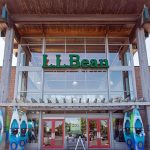Another hefty price increase is working its way through the early stages of the supply chain that produces the fleece and other polyester apparel that is a staple of the outdoor industry.
Unifi Inc., a major supplier of polyester yarns to fabric companies, is trying to push through a second set of price increases in as many quarters to recover a 22% rise in its raw material costs last year. Growing demand for used PET bottles, meanwhile, is pushing up what it has to pay for feedstocks used to make Repreve, a recycled polyester yarn.
“We are in no position to absorb those costs, so we have been out in market place passing along those costs of business,” Roger Berrier, EVP of sales, marketing and Asian operations for Unifi, told The BOSS Report last week. “Weve been successful to some degree, and lost business also.”
The company reported in early February that its overall pricing improved by 8.3% in the quarter ended Dec. 23.
Unifi buys raw materials, which are made from chemicals like paraxylene and monoethylene glycol (MEG) and turns them into virgin polyester fibers, which it then sells to fabric makers. Analysts confirmed that a plant outage in Saudi Arabia and the rising cost of crude oil combined last year to push MEG prices up by 50 percent from August through Dec. MEG prices have since fallen back by about half, but now prices of paraxylene, are rising, Berrier said.
In calendar year 2006, polyester accounted for an estimated 40% of global fiber consumption and demand is projected to increase by 6% to 7% annually through 2010.
Unifi is also paying higher prices for the recycled materials it uses to make Repreve; a yarn made from 100% recycled polyester now in big demand. Approximately 80% of Repreve comes from post-industrial waste generated at the manufacturing level, while the remainder comes from post-consumer waste mostly plastic water and beverage bottles.
Berrier said Unifi is seeing some increases in the price of fiber-grade recycled feedstocks. Analysts said much of that is being driven by rapid growth of exports to China, where Unifi produces some of its Repreve product.
In 2006, roughly 23.5% percent of the United States PET bottles, or about 1.27 billion, were recycled, and nearly half of those were exported, primarily to China, according to the National Association for PET Container Resources. Demand already outstrips supply and will grow dramatically in coming years if Americans dont begin recycling more as Wal-Mart increases its use of the material to bolster its own sustainability efforts, experts say.
“The consumer wants to see more recycled content, but the consumer is not recycling enough,” said Berrier.
Its too early to tell how the cost pressure will affect brands already struggling to contain costs. Todd Copeland, a material development specialist at Patagonia, said he has not seen an unusual increase in polyester prices.
“In theory, that should stay the same, but I think the issue is not with us or Unifi,” said Copeland. “Its because people are willing to buy recycled product, but not willing to recycle waste. It should be cheap, and the fact that there is so much demand for it that people are bidding up the price of old soda bottles is ridiculous.”
>>> Ridiculous or not, its only a matter of time before this and other price pressures hit retailers, who should be thinking now about the impact on their customers…















